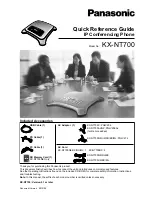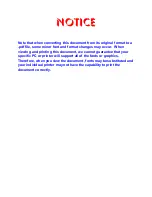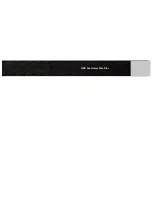
40
41
• Do not store the phone in hot areas. High
temperatures can shorten the life of electronic
devices, damage batteries, and warp or melt
certain plastics.
• Do not store the phone in cold areas. When
the phone warms up to its normal operating
temperature, moisture can form inside the
phone, which may damage the phone’s
electronic circuit boards.
• Do not drop, knock or shake the phone. Rough
handling can break internal circuit boards.
• Do not use harsh chemicals, cleaning solvents
or strong detergents to clean the phone. Wipe
it with a soft cloth slightly dampened in a mild
soap-and-water solution.
• Do not paint the phone. Paint can clog the
device’s moving parts and prevent proper
operation.
• Do not put the phone in or on heating
devices, such as a microwave oven, a stove
or a radiator. The phone may explode when
overheated.
• When the phone or battery gets wet, the label
indicating water damage inside the phone
changes color. In this case, phone repairs are
no longer guaranteed by the manufacturer’s
warranty, even if the warranty for your phone
has not expired.
• If your phone has a flash or light, do not use
it too close to the eyes of people or animals.
This may cause damage to their eyes.
• Use only the supplied or an approved
replacement antenna. Unauthorized antennas
or modified accessories may damage the
phone and violate regulations governing radio
devices.
• If the phone, battery, charger or any accessory
is not working properly, take it to your nearest
qualified service facility. The personnel there
will assist you, and if necessary, arrange for
service.
Health and safety information
Precautions when using batteries
• Never use a charger or battery that is damaged
in any way.
• Use the battery only for its intended purpose.
• If you use the phone near the network’s base
station, it uses less power. Talk and standby
time are greatly affected by the signal strength
on the cellular network and the parameters set
by the service provider.
• Battery charging time depends on the
remaining battery charge, the type of battery,
and the charger used. The battery can be
charged and discharged hundreds of times,
but it will gradually wear out. When the
operation time is noticeably shorter than
normal, it is time to buy a new battery.
• If left unused, a fully charged battery will
discharge itself over time.
• Use only Samsung-approved batteries, and
recharge your battery only with Samsung-
approved chargers. Disconnect the charger
from the power source when it is not in
use. Do not leave the battery connected
to a charger for more than a week, since
overcharging may shorten its life.
• Extreme temperatures will affect the charging
capacity of your battery: it may require cooling
or warming first.
• Do not leave the battery in hot or cold
places because the capacity and lifetime of
the battery will be reduced. Try to keep the
battery at room temperature. A phone with a
hot or cold battery may not work temporarily,
even when the battery is fully charged.
Li-ion batteries are particularly affected by
temperatures below 0℃(32 ℉).
• Do not short-circuit the battery. Accidental
short-circuiting can occur when a metallic
object like a coin, clip or pen causes a direct
connection between the + and - terminals of
the battery (metal strips on the battery). For
example, do not carry a spare battery in a
pocket or bag where the battery may contact
metal objects. Short-circuiting the terminals
may damage the battery or the object causing


































